Around Beauty Meetup #14: New Door Leading to the Versatility and Depth of Coffee
2023.02.17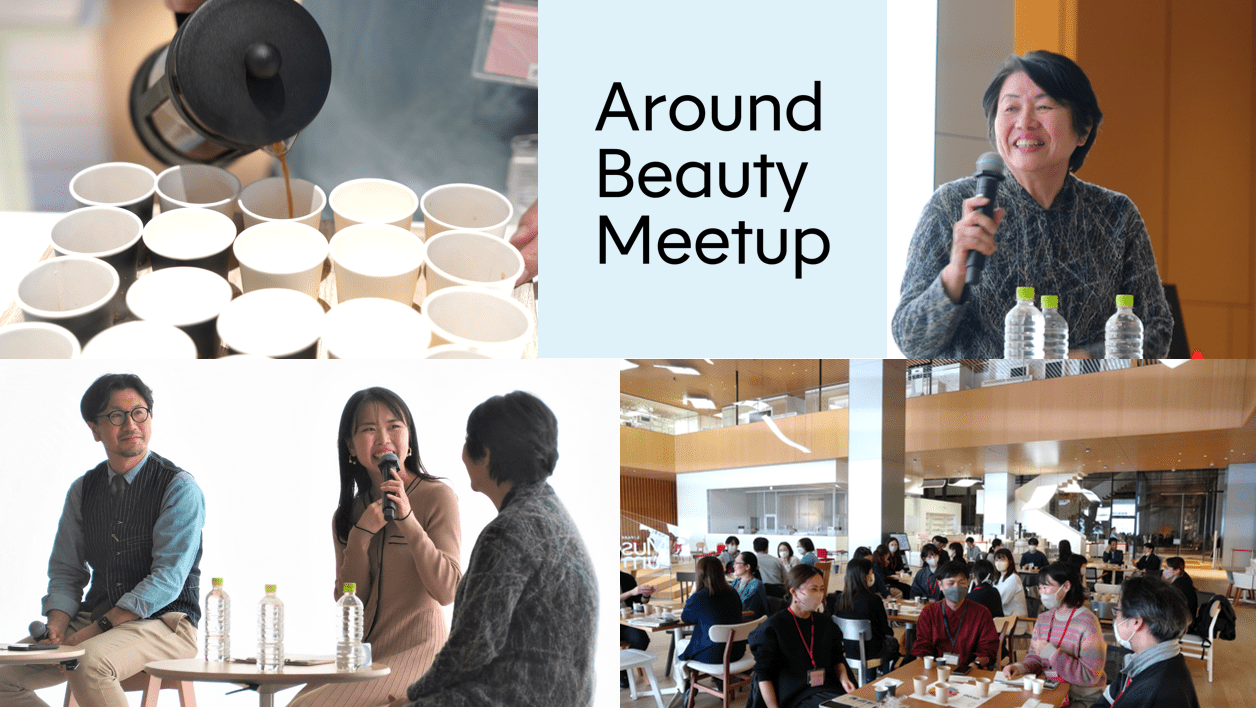
The "Around Beauty Meetup" is a gathering of various innovators in and outside the company related to beauty. The 14th Around Beauty Meetup, which had been held online for some time due to the Corona Disaster, was the first real meeting in two years. This time, under the theme of “Customer value that enriches everyday life Consider with Coffee Expert”, we interviewed Ms. Yuko Itoi, representative of the specialty coffee shop "Times Club" in Kyoto, about the appeal of coffee that attracts so many people.
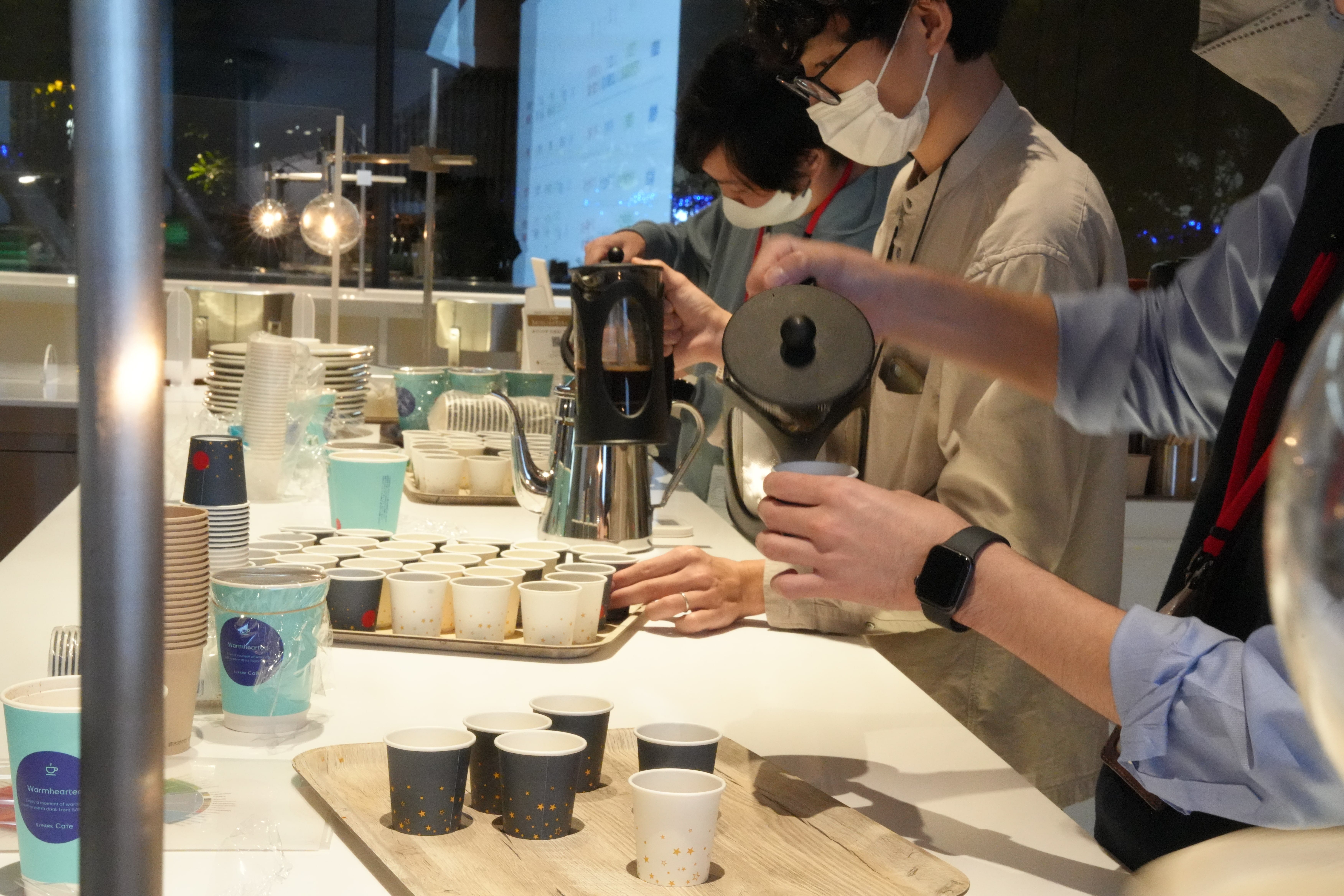
First, the opening speech by Tomonori Toyoda of fibona was given. He explained the purpose of Meetup and told the audience, "Everyone perceives things differently according to their values, and there is no right answer. Please bring back some business tips through discussions at meetup and lead to challenges from tomorrow.".
During the ice break, participants introduced themselves and shared their "thing that color their daily lives" . It was the first time in two years that perticioants faced each other. At first there was a feeling of tension, but the atmosphere in the field gradually relaxed after the greetings.
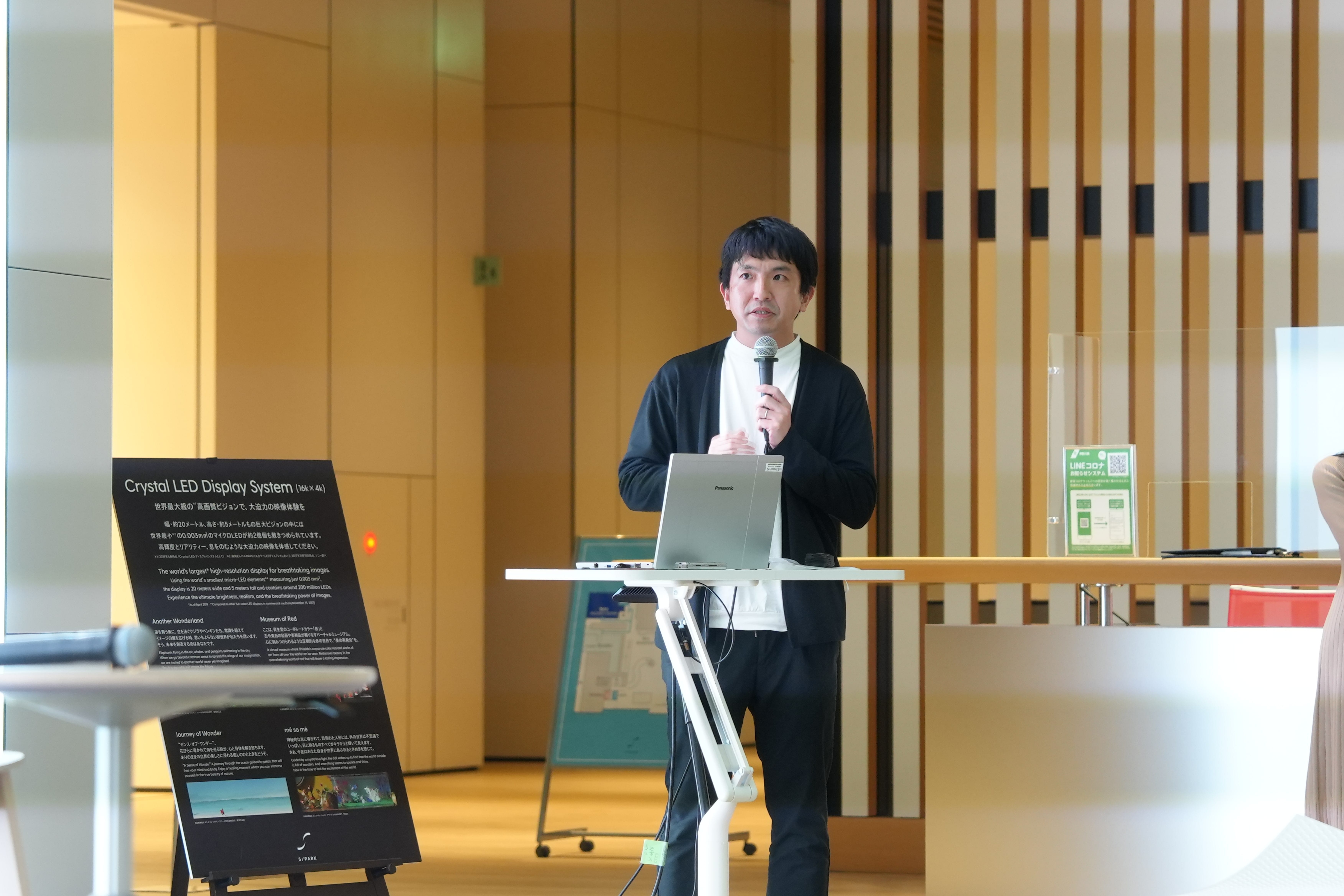
"What is good coffee?" The emergence of specialty coffee that changed the industry
Ms.Itoi, who ounded her café in Kyoto in 1985, now works internationally not only as a roaster, but also as a judge at a coffee competitions that evaluate the flavor of coffee. She enjoyed her part time job at a coffee shop so much that she decided to open her own store. She also became interested in home roasting, which was attracting attention at that time, and started roasting with a small roasting machine. Eventually,she began to visit coffee producing regions, saying "You don’t kow what you don’t know until you go there", she has continued ti accumulate knowledge and experience while traveling around the world.
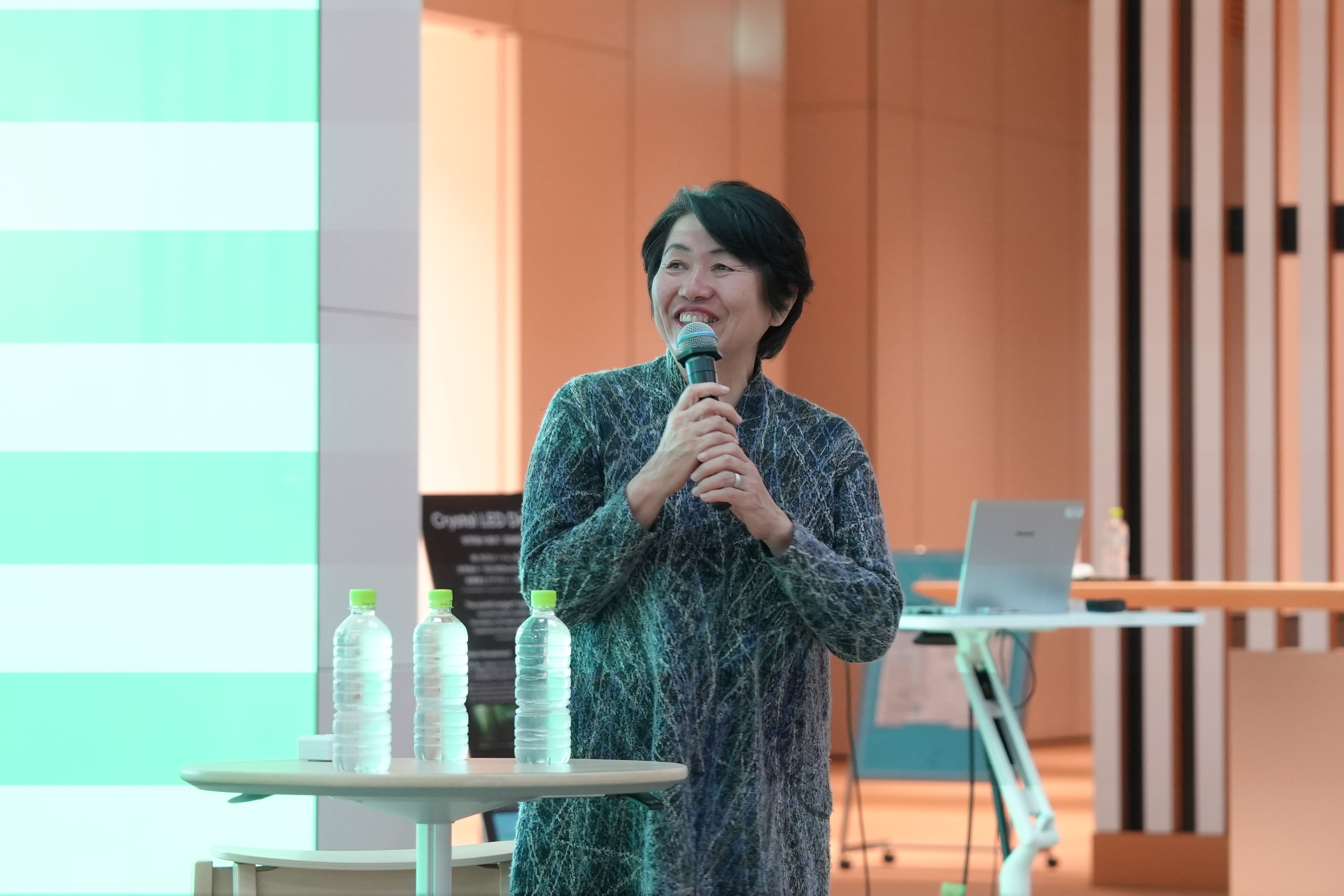
It was around 2000 that specialty coffee gained social recognition. "What is good coffee" has come to be considered worldwide. In the 1990s, a new type of cafe, such as Starbucks Coffee, appeared and the industry changed dramatically. And this was a tailwind leading to the popularity of specialty coffee in recent years.
Coffee beans are no longer roughly classified by container, as in the past, but are now subject to a detailed, objective evaluation system for each production area and farm, similar to that used for rice or Japanese sake. In terms of flavor characteristics, traceability, and quality, those with 80 or more scores are recognized as special coffee, and those with less scores are classified as commodity coffee and off-grade coffee. Just as junmai daiginjo is not the only sake, commodity coffee has the goodness of commodity coffee.
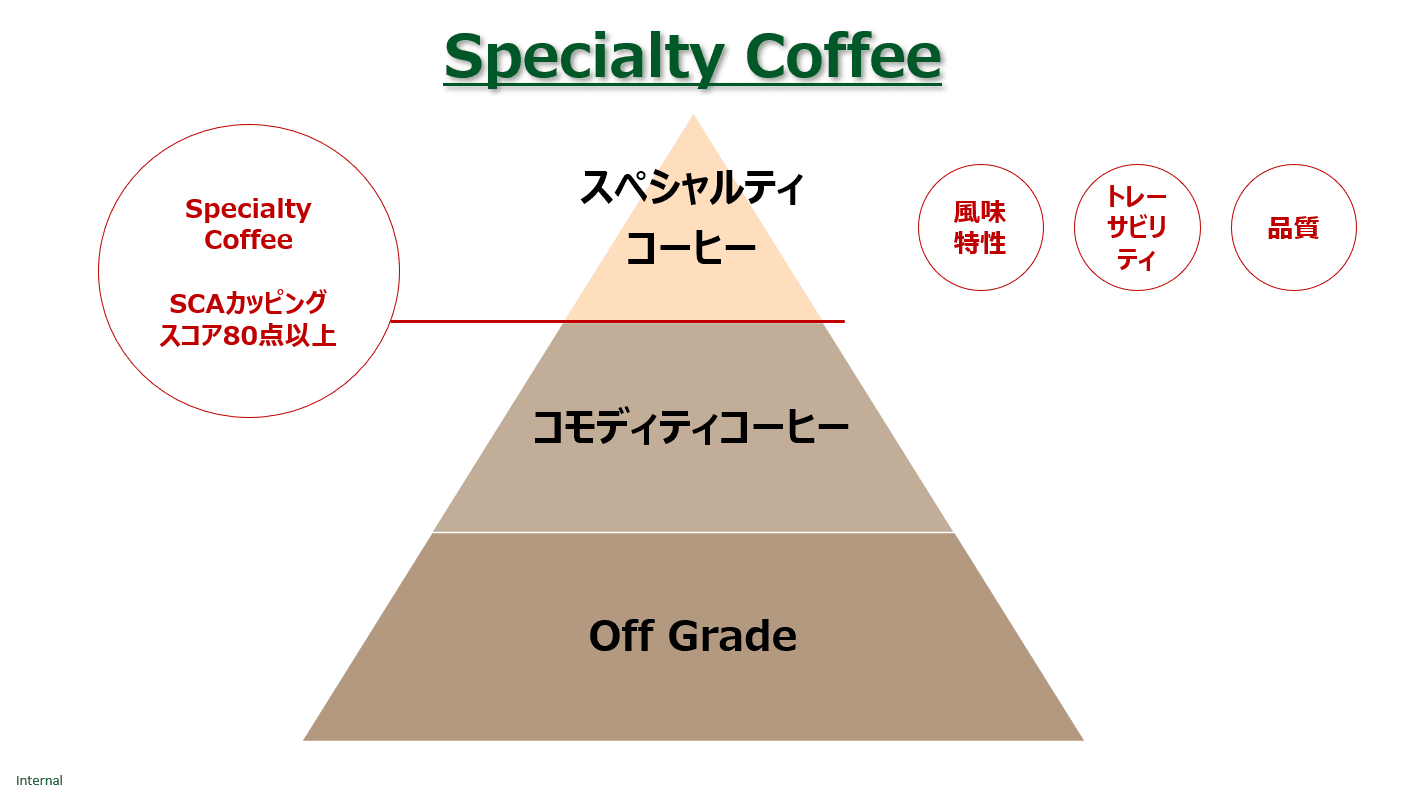
The myriad of choices that exist before a cup of coffee is poured.
Since coffee leaves are sensitive to the cold, the production area is concentrated to 23.5 degrees north and south latitudes across the equator. A mountainous region with a high altitude and a refreshing breeze is the best suited area, and Brazil boasts the world's largest production of coffee. In Brazil, there are many farms that stick to organic from the soil stage. In India, as one of the social activities by the large-scale fund set up by the country, the company is focusing on the production of coffee incorporating organic and biodynamic.
Coffee is made by extracting the green beans (seeds) from a cherry-like fruit called coffee cherry. There are two major refining methods for extracting the green coffee beans: "Natural," in which the coffee cherries are dried in the sun and threshed, and "Washed," in which they are soaked in water, fermented, and washed. Recently, a new processing method that combines these two methods has started in some producing countries and is spreading to other countries.
-The green coffee beans are then shipped, roasted, and brewed around the world and enjoyed as coffee.
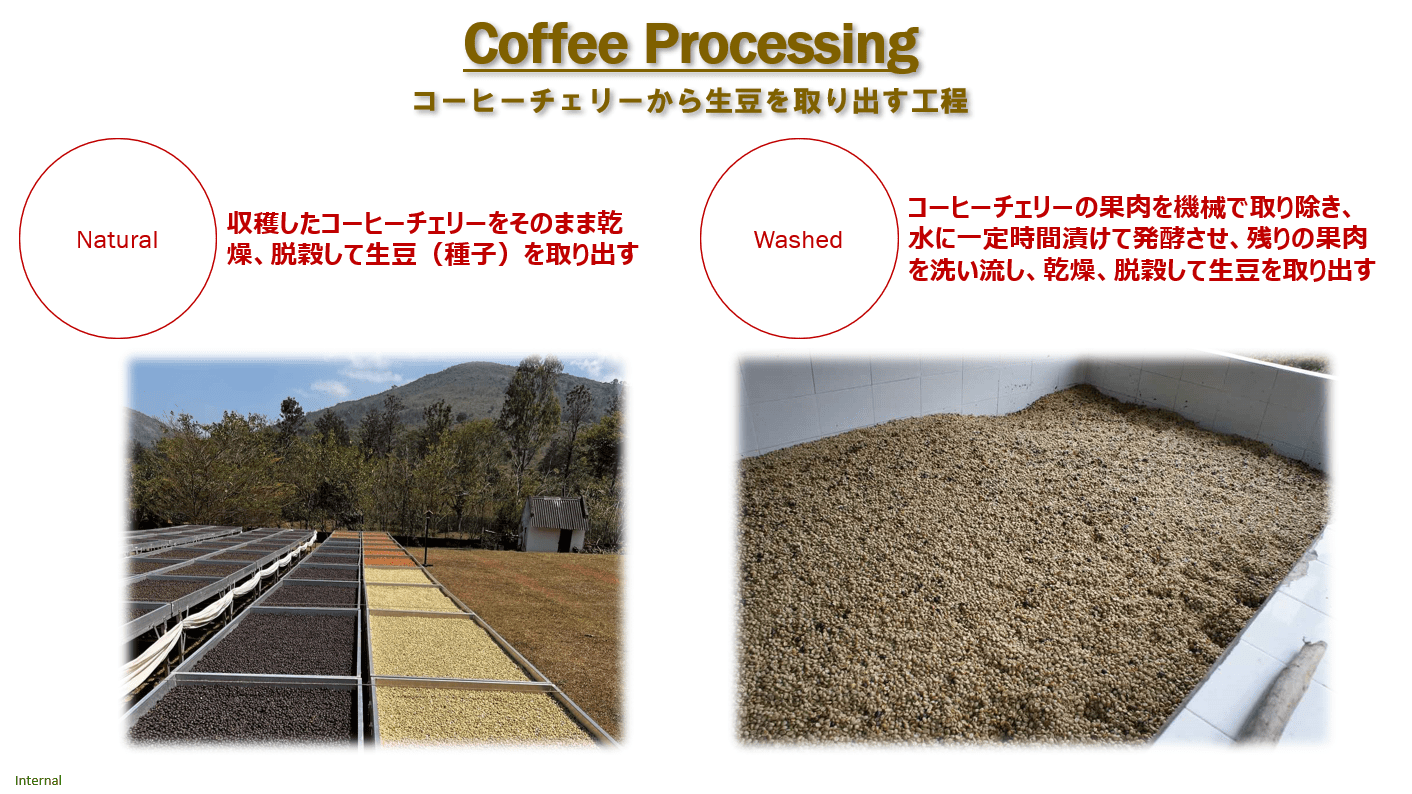
Even a single word of coffee can vary greatly in taste and flavor depending on the various processes involved. While differences in production areas and varieties are well known, the farm and the processing method of the green coffee beans mentioned above are also factors. The word "terroir" is often used to describe wine, etc. It is interesting to note that coffee also tastes different, even from the same variety and the same tree, depending on the climate and topography of the region. Another characteristic of coffee is that even after arriving in the country of consumption, various flavors are added depending on the degree of roasting, the grain size of the grind, and the extraction equipment and method.
The Latest World Affairs Revealed through Coffee
The word "from Seed to Cup" is used to describe specialty coffee. Managing the entire process from the verbal state of species to pouring into the cup as coffee is the point of special coffee. One of the reasons why specialty coffee attracted attention was that it became easier to connect with producers due to the spread of mobile phones and the Internet, and also that it became possible to visit and talk directly to the producing areas.
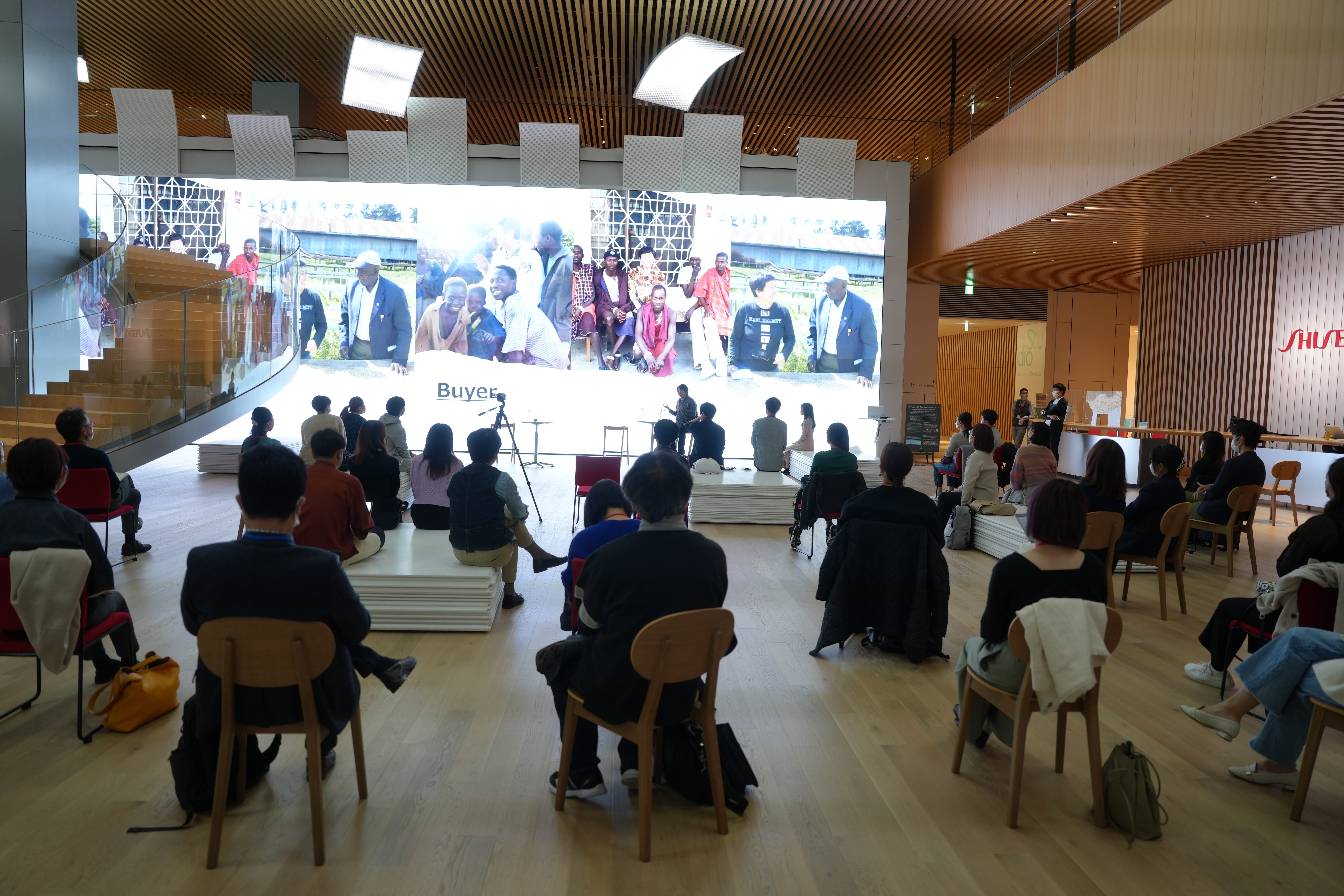
Now both Maasai producers and American buyers have immediate access to coffee market prices. Ms.Itoi explains, "The information gap has narrowed considerably, making it a fairer world." Citing Rwanda, one of the production areas, as an example, she says, "The image of genocide may persist, but the government is focusing on economic growth, infrastructure, tourism, and security stability, aiming to become the "Singapore of Africa. Also, in Rwanda, once a month, all the people go outside to pick up trash. It may be the safest country in East Africa right now," she said, introducing the changes he has seen firsthand in the world.
Ms. Itoi also founded the Japan chapter of
IWCA
, an organization that aims to improve the status of women involved in coffee production, and serves as its representative director. According to the Gender Gap Index published by the World Economic Forum, Japan ranks 116th in the world, while Rwanda is 6th. She says that many women hold important positions such as ambassadors and ministers. Itoi hopes that Japan will also improve in the future, and she will continue to support the evolution of the industry by using her knowledge of the coffee industry from her experience in coffee production around the world.
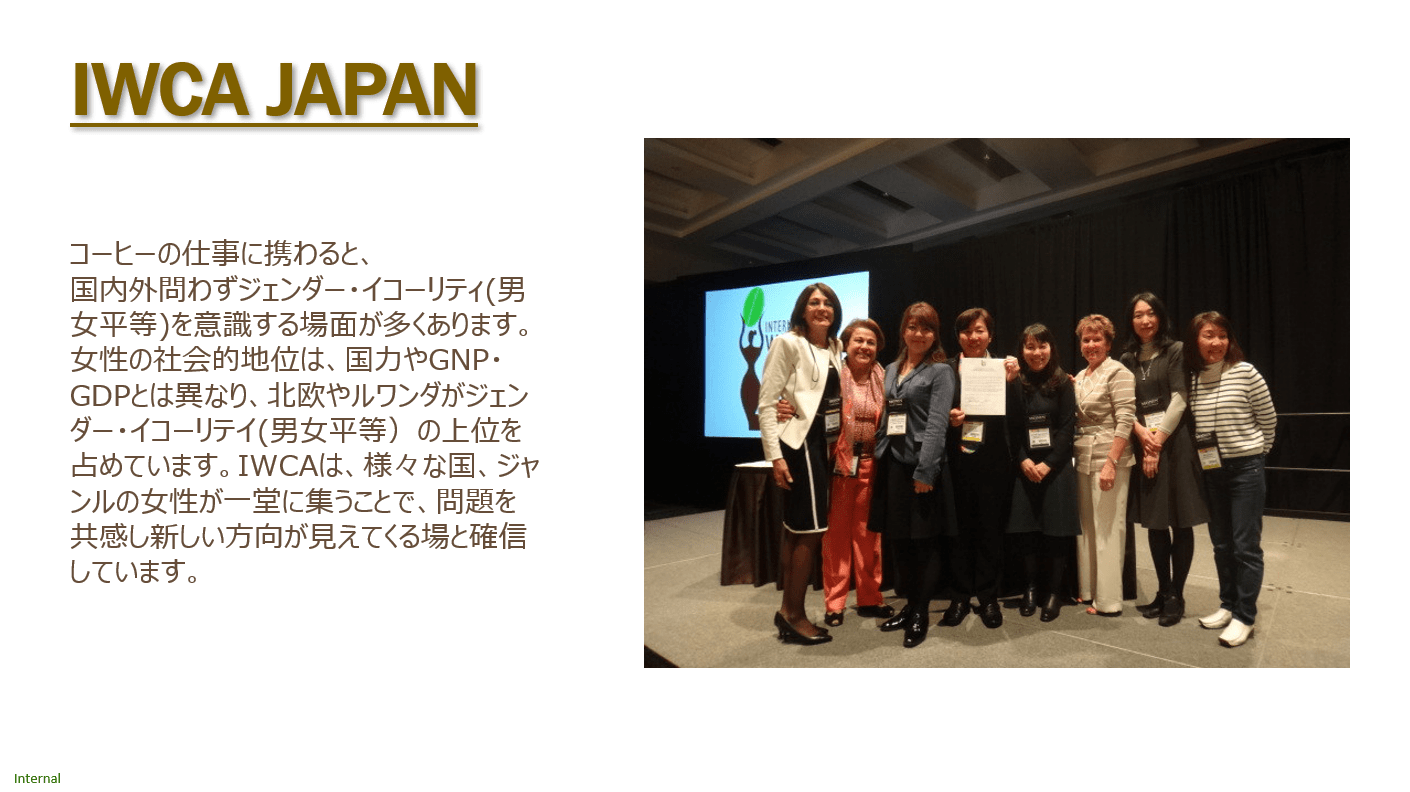
Surprisingly close!? Similarities and differences between “coffee” and “cosmetics”
In the latter half of the session, Shuntaro Okazaki of Mirai Institute of Development, "a big coffee lover," and Yuuri Koshima of Brand Value Development Institute, a member of fibona and organizer of this meetup, joined Ms. Itoi for a panel session.
Coffee lovers Okazaki and Koshima were intrigued by Ms.Itoi's story, and after asking several coffee-related questions, the three discussed "what coffee and cosmetics have in common. Koshima, who is involved in the development of fragrances for cosmetics, said, "The goal of a cosmetic fragrance is to set a goal of a world view or story, and then create a fragrance that matches that image. On the other hand, with coffee, the goal is not set from the beginning, but rather, good aromas and flavors are found by making the best use of the ingredients," she said.
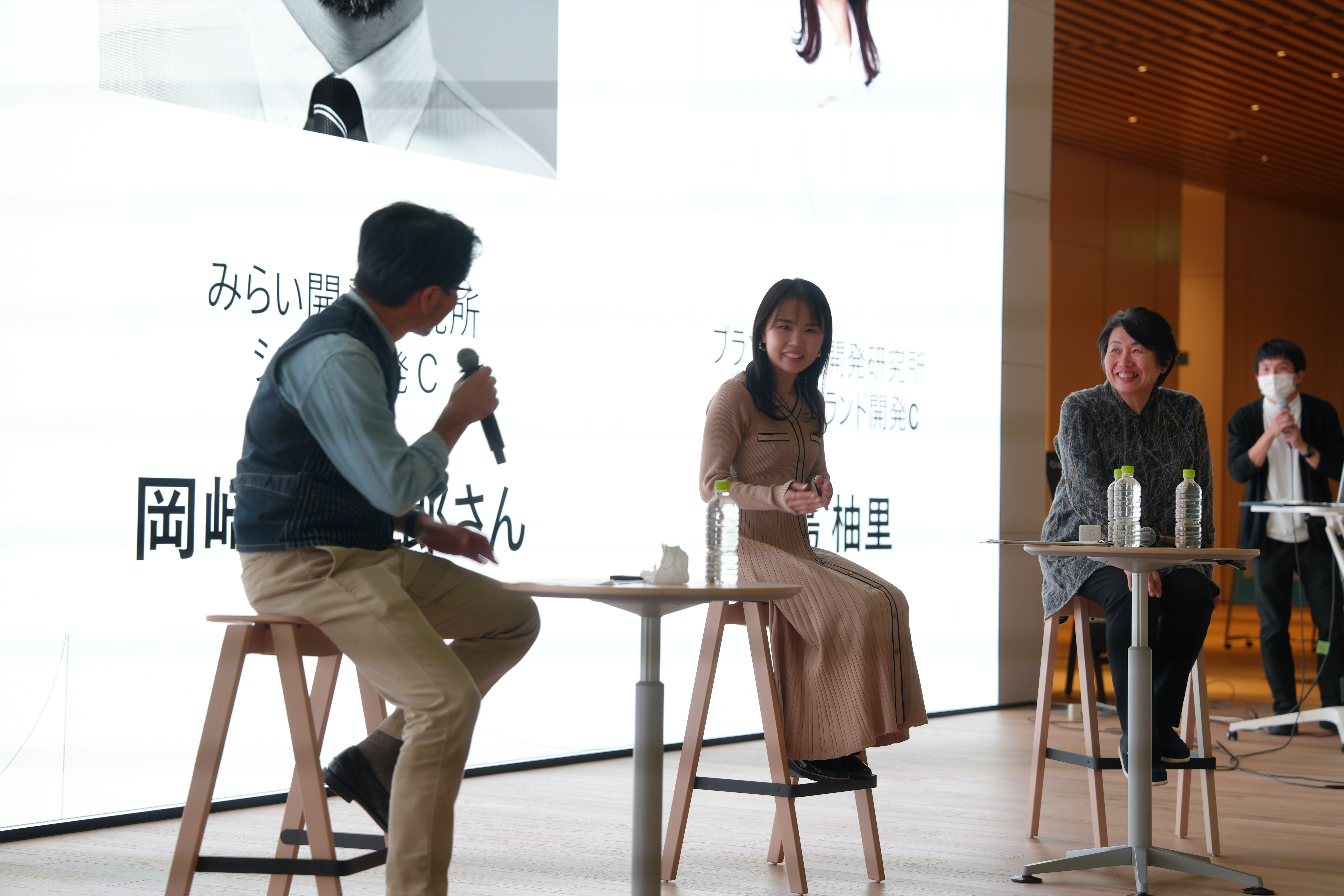
Okazaki said, "Cosmetics have both a functional value in bringing benefits to the skin and an emotional value in raising one's spirits. Coffee is no different. Caffeine is known to have the functional value of stimulating the senses, but its aroma also has the emotional value of enriching people's lives," he said, pointing to the similarities. In addition to its stimulant effect, coffee's ability to appeal to people's emotions is also an area that cosmetics must focus on in the future," he said.
Ms.Itoi agrees with their comments. Coffee is a mysterious beverage. We drink coffee when we want to 'work hard' and when we want to relax. It is not only the drinking, but also the aroma that we seek. If you take the aroma out of coffee, I don't think we would drink that much," she commented.
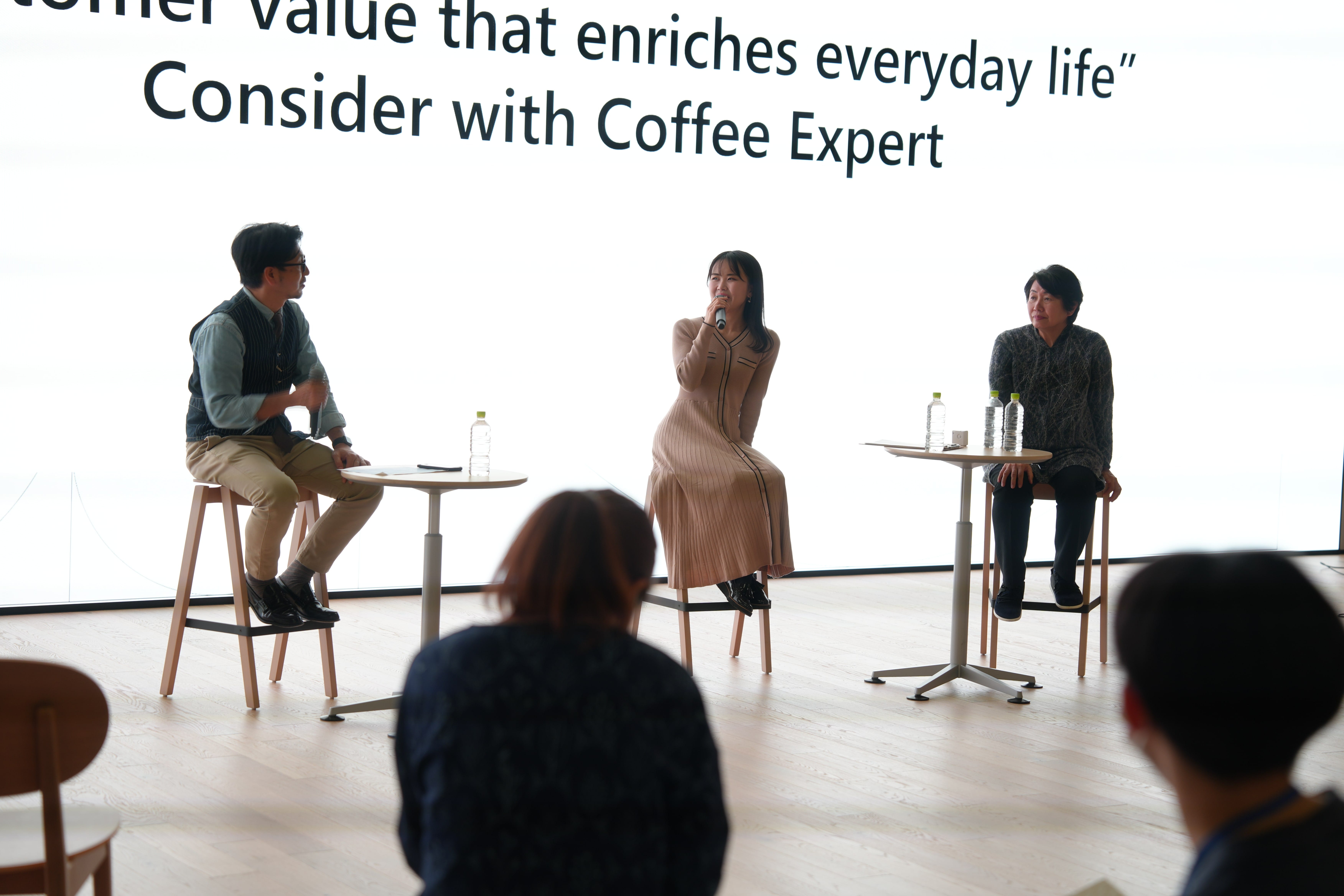
Okazaki asked Koshima, "I feel that the aroma of coffee, even if it is a little strong, does not make people feel bad. When Okazaki asked Koshima if it would be possible to create a fragrance in cosmetics that would make everyone feel good, Koshima replied, "Fragrances are perceived differently depending on the customer's condition. It is a difficult challenge to provide a fragrance that everyone can feel 100 points for every fluctuating day," she said. Mr. Itoi said, "Everyone loves the smell of roasting meat, don't they? Perhaps, as a primitive instinct, we are stimulated by the fragrance of fire.
How are coffee-flavored and fragrance made? "When it's right roasted, it brings out the original fragrance of coffee beans," Ms.Itoi explained. "On the other hand, when it's dark roasted, it's called "caramelization," and it gives off sweetness and oils, giving it a flavor that's grating," revealing that the roasts are changed by the flavor it wants to produce.
Experience the taste! The diversity of coffee flavors and fragrances
Seeing is believing. Participants moved to the adjacent S/PARK Cafe, where they tasted four coffees carefully selected by Ms. Itoi, each from a different region and roasted to perfection, and exchanged opinions and impressions with each other at each table. The participants were surprised at the variety of expressions on the chart used to evaluate the coffees, and experienced the differences in taste and aroma, saying things like, "It smells like berries," or "It's fruity and delicious.
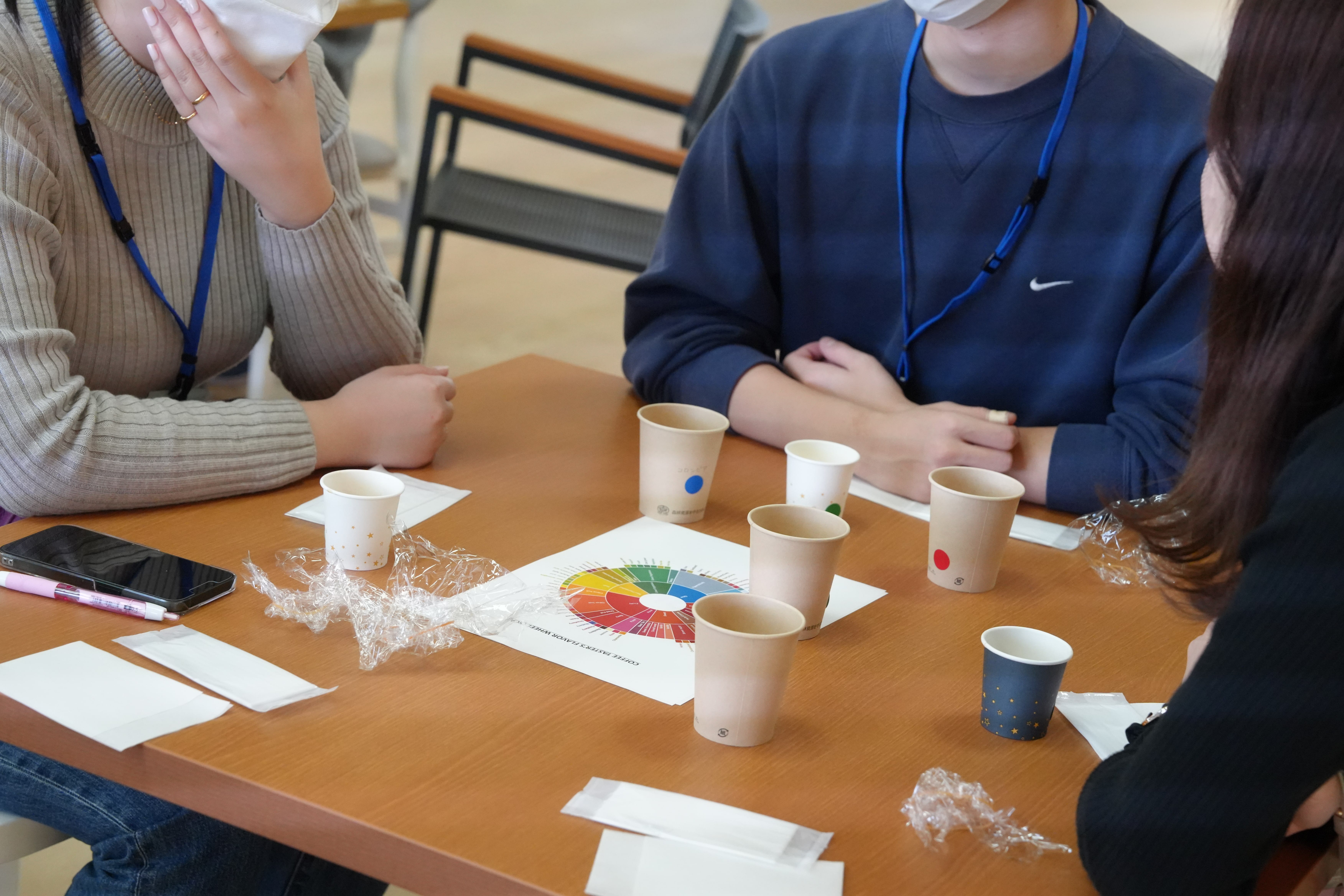
In addition, Yuya Asano, manager of S/PARK Cafe, provided Melba toast and two kinds of dipping sauces (spiced chocolate cream and fresh pear jam) for this meetup as snacks to pair with the coffee. The participants enjoyed the taste and aroma spread amplified by the snacks, and the discussion became even more lively.
As the party reached its climax, Yuko Nakanishi, leader of the fibona project, made closing comments. Nakanishi, who actually has no good memories of coffee, was thrilled, saying, "Today's coffee was so delicious, I feel like it opened a new door for me. She also commented on Itoi's activities, saying, "I was impressed by the way she is experiencing the world with her five senses through coffee, which she loves so much. She also commented on the real-life event, saying, "It was wonderful to hear from Ms. Itoi what she is passionate about, and to be able to experience it through her own words, as she did with her coffee this time. I also realized how interesting it is to talk about your passions with others and communicate with them through this opportunity.
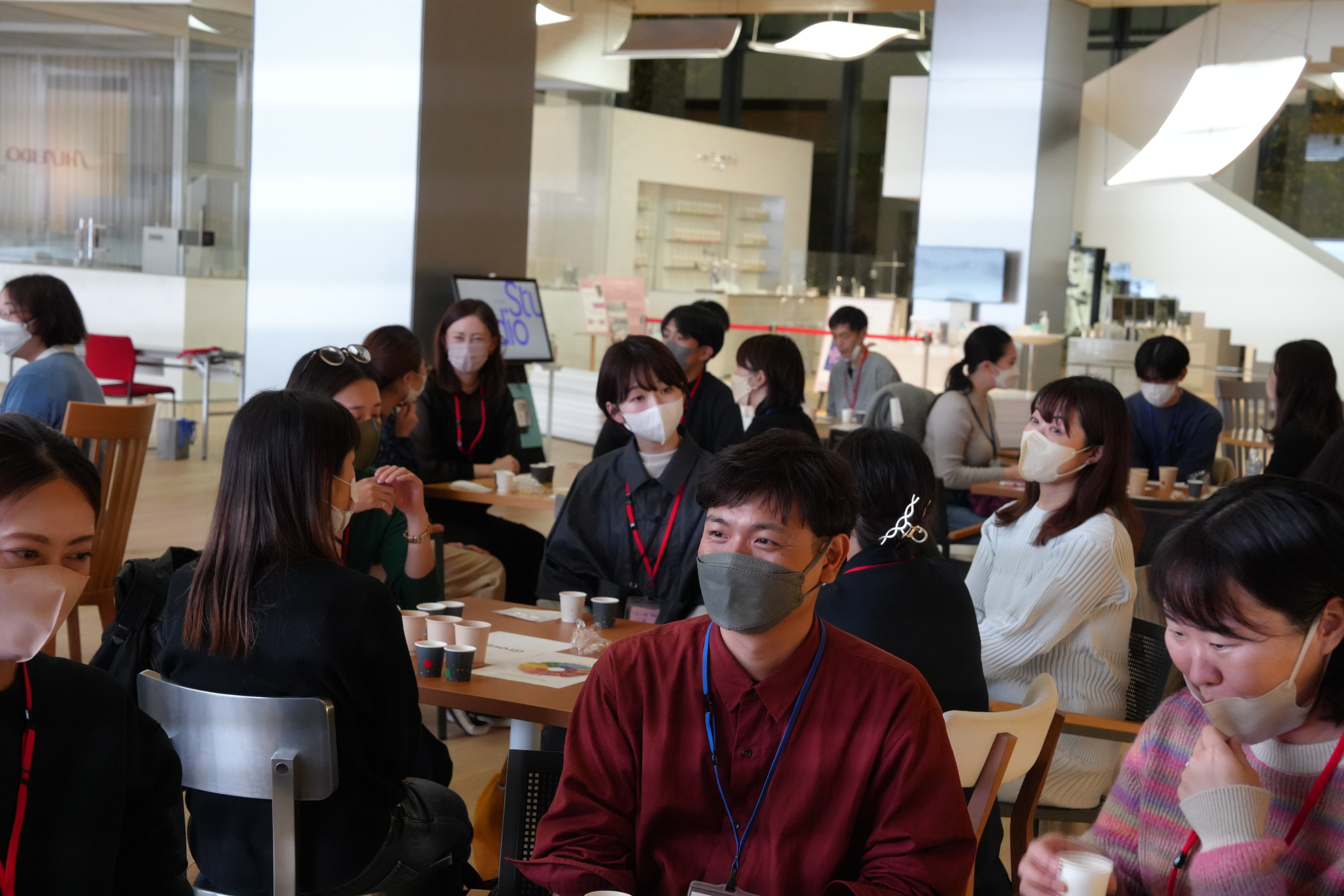
Coffee is just one of the luxury items, but it has an appeal that makes people feel rich and satisfied. The participants must have also realized that coffee has many elements in common with cosmetics.
Many of us were also inspired by the personality of Ms. Itoi, who taught us that we can connect to the world by pursuing our interests and curiosity. We are grateful that we were able to experience the breadth and depth of this theme in a real place, and our expectations for the next meetup have grown even higher.
Project

Cultivation
Activity